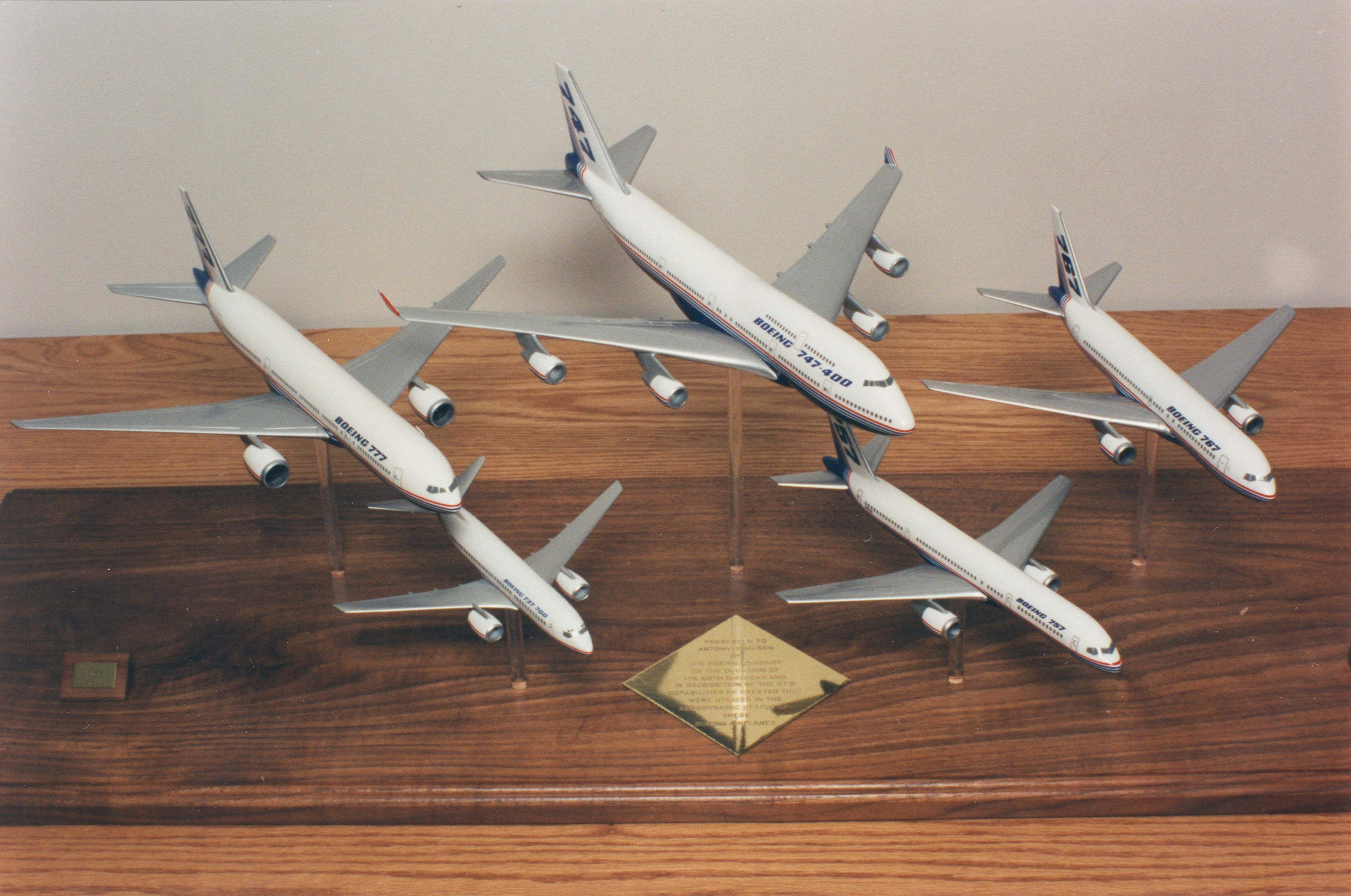
The Boeing Airplanes that have Benefitted from Antony Jameson's CFD Technology1
Paul E. Rubbert2
Over the span of Professor Jameson's career, computational fluid dynamics (CFD) has advanced from a very primitive technology to one that has emerged as a dominant tool in aerodynamic design. It has changed the way by which airplanes are designed. Many of those advances were propelled by the understanding, the algorithm technology, and the codes that were created by Antony Jameson. Today the knowledge and the technology that he has created is known and utilized throughout the world.
One key element that underlies his continuing position of eminence is his outstanding ability to work problems right, to solve the challenging problems in ways that are most practical, useful, and highly valued. The right word is elegant! But within the broad perspective of the airplane design community, that is the only ante that lets one into the game.
The other key element that allows one to be a winner at the game is the ability to "work the right problems," to have the perception and understanding that guides one to work on those problems whose solutions will have the largest impact. In this respect, Jameson's track record is truly uncanny. He developed full potential solvers at the time when hardware advances and the perspective of airplane companies had advanced to the point where such technology would be accepted and used. The same is true of his development of Euler solvers, of Navier-Stokes technology, and of his recent work on optimization methodology. Along the way he also made many, many algorithm improvements that increased the accuracy and reliability of accuracy of CFD, and which reduced the cost and cycle time of performing CFD-based airplane design work. Each of those developments served to increase the effectiveness of CFD and to enlarge its contribution to the process of designing airplanes.
Antony Jameson has become a legend within the Boeing company, not only within the ranks of research and design engineering, but also within the ranks of management up through the hallways and offices of the executive suite. He has made his mark with them through his many contributions to the processes of designing airplanes, and through exposure at countless quarterly reviews over the years wherein Jameson's technology and codes are regularly presented as the core technology that underlies many of the new CFD capabilities that are reported in those reviews.
It is in recognition of those many contributions that The Boeing Company, on the occasion of his 60th birthday, presents to Antony Jameson a model displaying the many Boeing airplanes whose aerodynamics design was carried out with the aid of CFD technology and codes developed by him. The list of those airplanes begins with the Boeing 767, designed in the late 1970s. That was followed by the 757, the 747-400, the new Boeing 777, and the recentlyannounced Boeing 737-700 which embodies a new wing and other advanced features. Each of those airplanes is displayed on the model.
Within the spirit of modern airplane design practice, the model also contains room for growth. There is one model position reserved for a future Boeing 787 airplane, and another for a 797. Those airplanes are presently only a gleam in our eye, but when they are designed and built, they undoubtedly also will contain the imprint of Jameson's computational methodology.
The plaque on the model reads:
Presented to
Antony Jameson
by
The Boeing Company
on the occasion of his 60th birthday
and
In recognition of the CFD capabilities
he created that were utilized in the
aerodynamic design of these
Boeing Airplanes
A photographs of the model appears below.
1A PDF version of this article is also available:

2 Boeing Commercial Airplane Group, Seattle, Washington 98124-2207. Frontiers of Computational Fluid Dynamics- 1994. Editors David A. Caughey and Mohamed M. Hafez, Copyright 1994 John Wiley & Sons Ltd.

